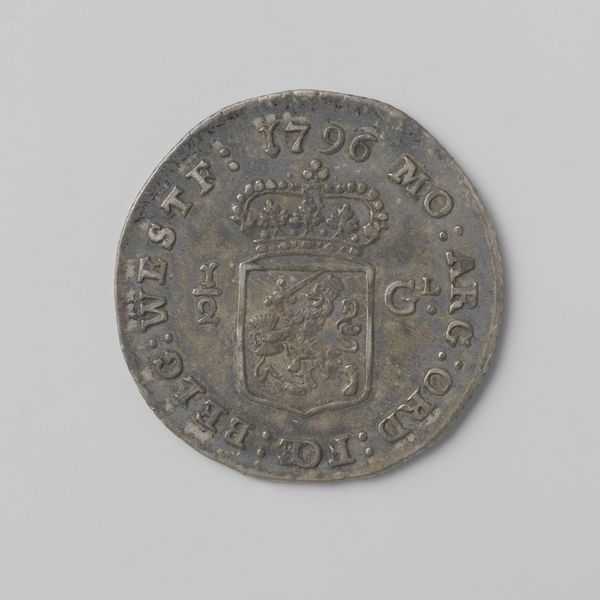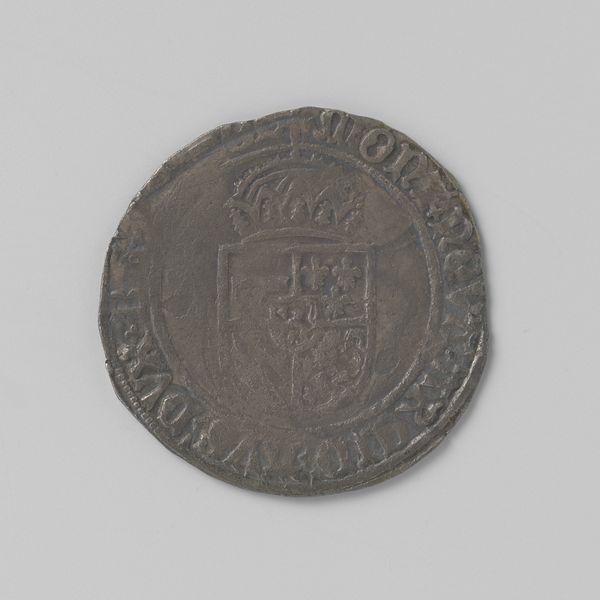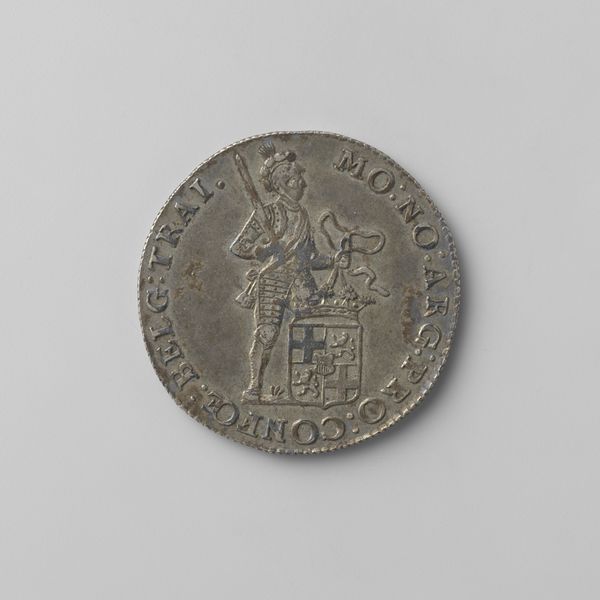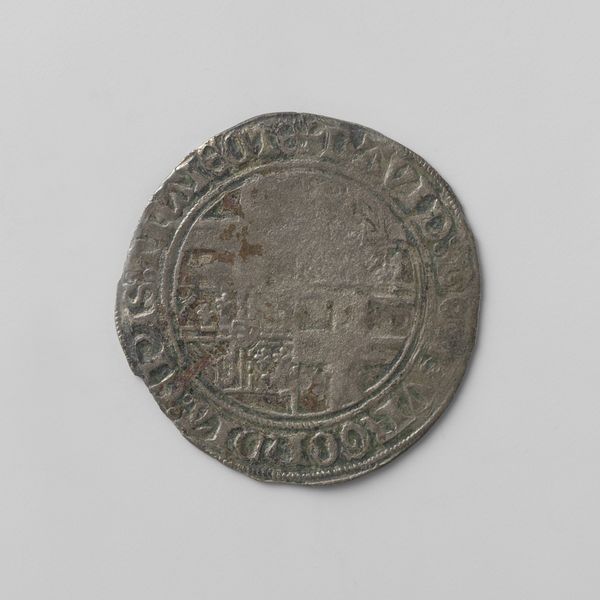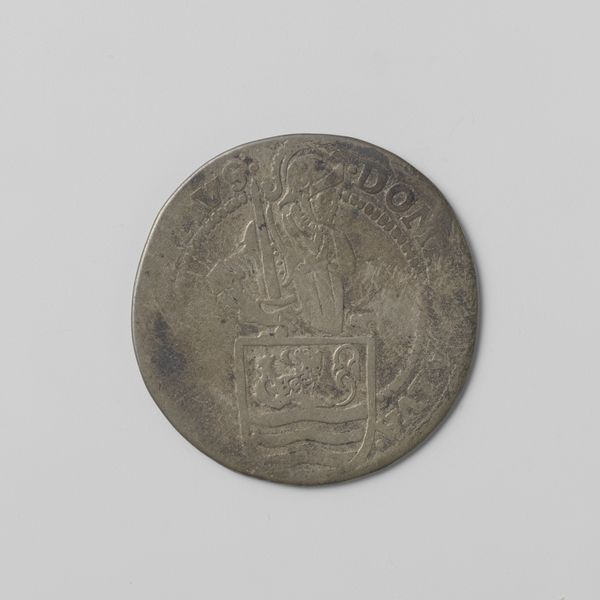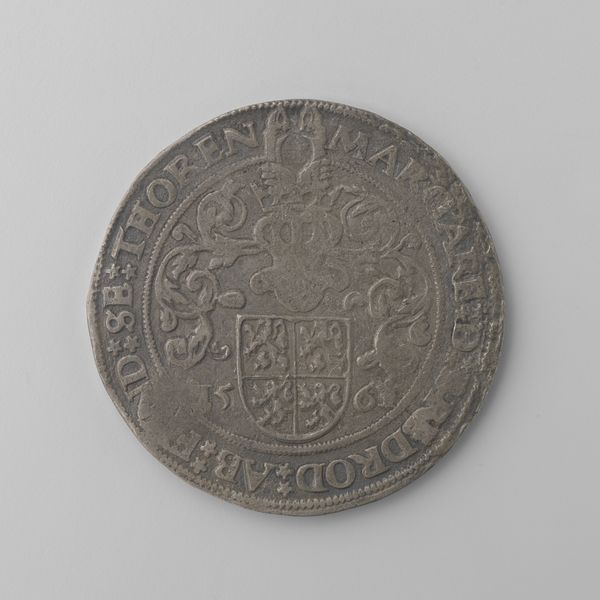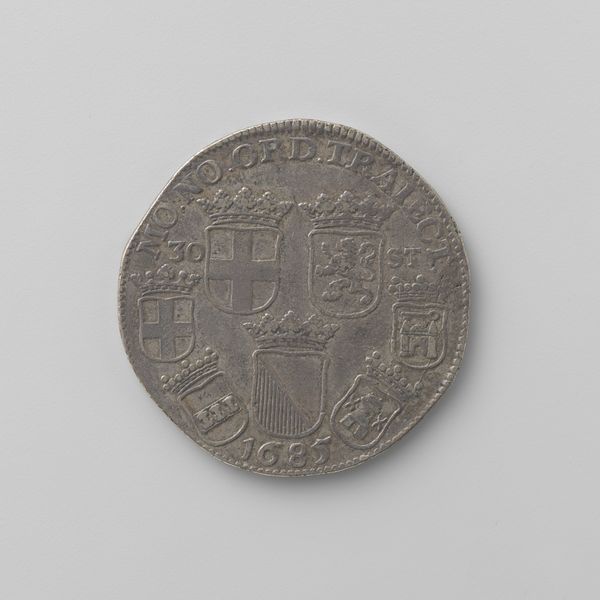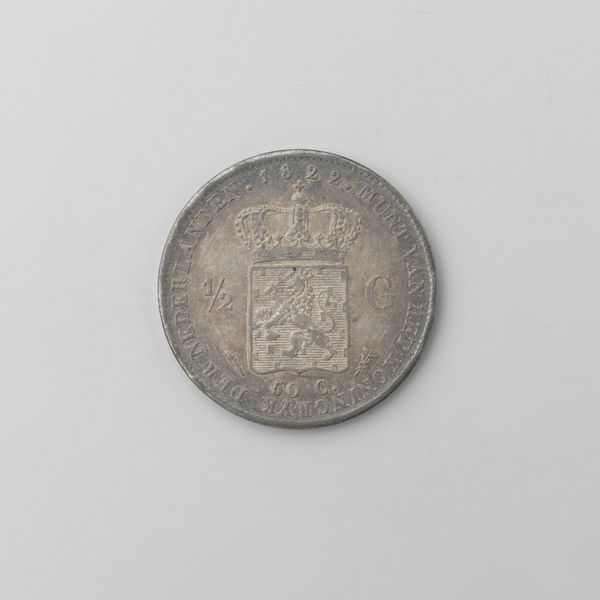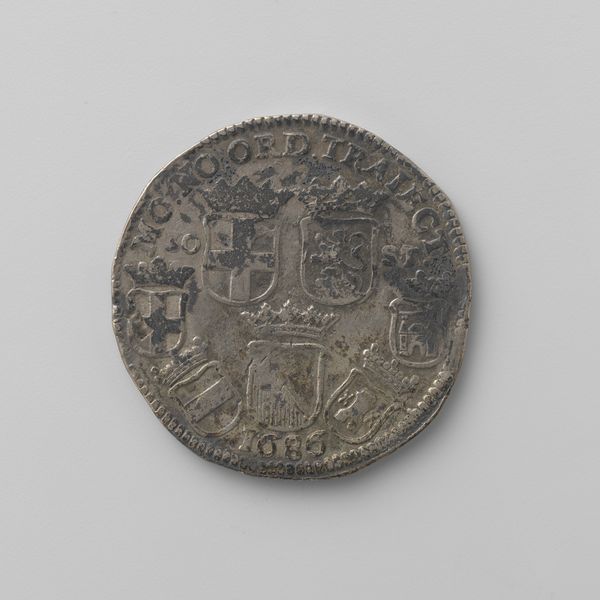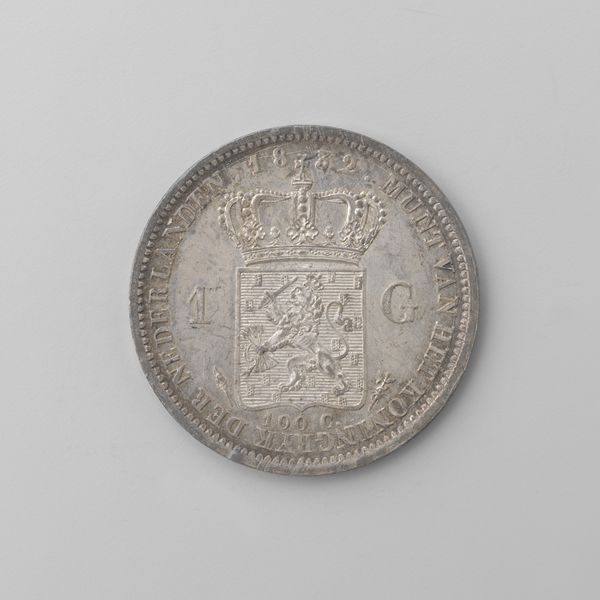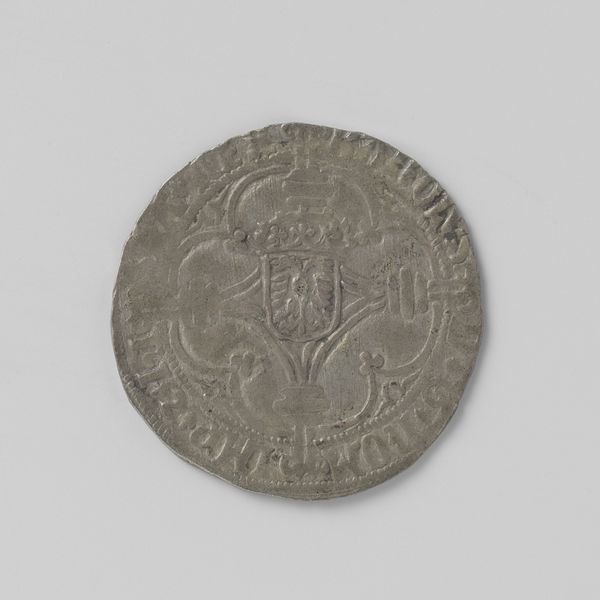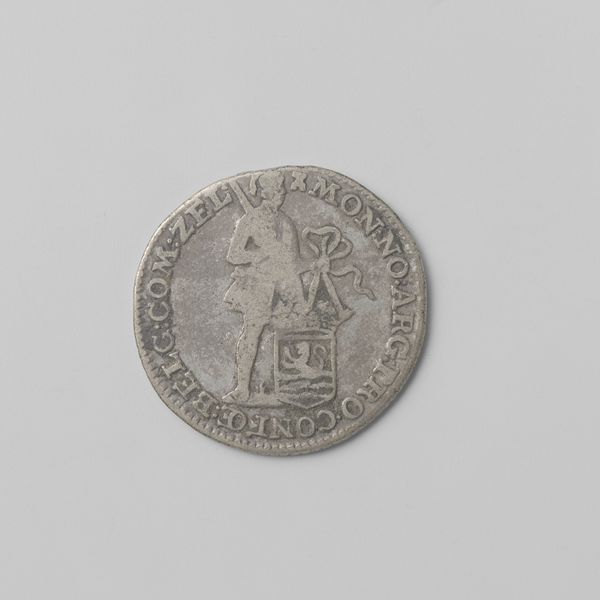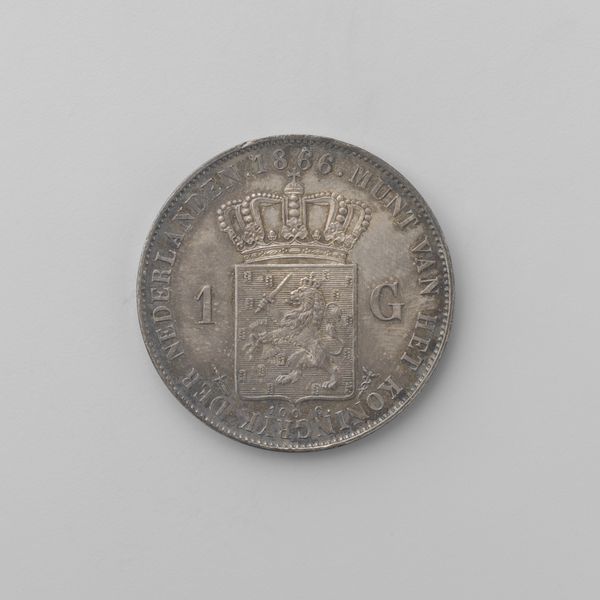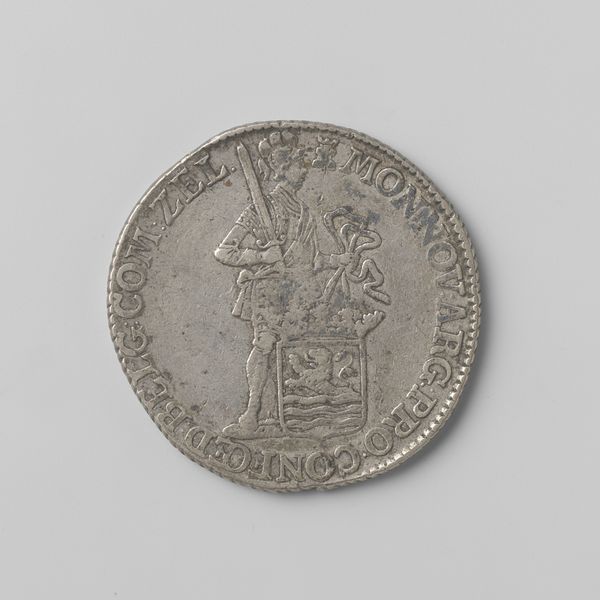
print, metal, engraving
#
natural stone pattern
#
rippled sketch texture
# print
#
metal
#
detailed texture
#
old engraving style
#
woodcut effect
#
ancient-mediterranean
#
embossed
#
pattern repetition
#
history-painting
#
golden font
#
engraving
#
foil embossing
#
historical font
Dimensions: diameter 3.1 cm, weight 4.75 gr
Copyright: Rijks Museum: Open Domain
This Zwolle Arendschelling, a silver coin, was struck by the city of Zwolle, during the reign of Rudolf II. As a material, silver has a compelling presence. Highly reflective, it takes a clear impression of a die, which made it ideal for minting coinage. The process of minting these coins involved skilled labor. A die, essentially a stamp, would have been engraved with the city's heraldry and the ruler's name. Blanks of silver would have been carefully weighed, placed between these dies, and then struck with a hammer or press, transferring the image onto the coin. The very act of striking is an assertion of power, stamping authority onto a valuable material, and converting it into currency. These aren't traditional art materials, but they do represent an important intersection of craft, economy, and power. The coin's production reflects a highly organized society, where even small details of design and production contribute to the maintenance of civic and imperial power. By looking closely at the processes involved, we recognize how such an everyday object is filled with social meaning.
Comments
No comments
Be the first to comment and join the conversation on the ultimate creative platform.
